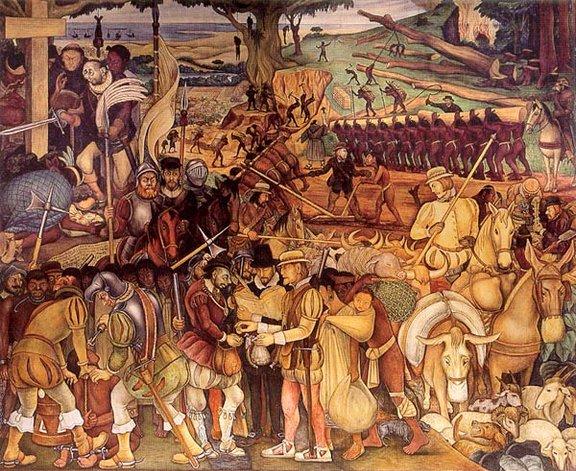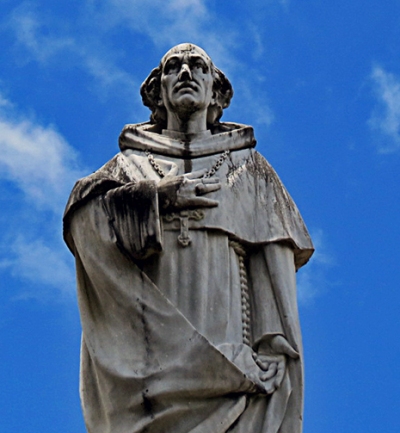Writing 1571 in opposition to Bartolomé de las Casas’ advocay for indigeneous citizens of the Americas, an unnamed Spanish church official in Peru penned the following parable as a theological rationale for conquest:
 "God acted . . . as a father who has two daughters: one very white, full of grace and gentility; the other very ugly, bleary-eyed, stupid and bestial. If the first is to be married, she doesn't need a dowry, but only to be put in the palace and those who want to marry her would compete for her. For the ugly, stupid, foolish wretch, it isn't enough to give her a large dowry, many jewels, lovely magnificent, and expensive clothes. . . .
"God acted . . . as a father who has two daughters: one very white, full of grace and gentility; the other very ugly, bleary-eyed, stupid and bestial. If the first is to be married, she doesn't need a dowry, but only to be put in the palace and those who want to marry her would compete for her. For the ugly, stupid, foolish wretch, it isn't enough to give her a large dowry, many jewels, lovely magnificent, and expensive clothes. . . .
Diego Rivera, 1951, Palacio Nacional in Ciudad de México
"God did the same for us. Certainly we were all unfaithful, be it Europe or Asia; but in their natural state they have great beauty, much science and discretion. Little was needed for the apostles and apostolic men to betroth those souls with Jesus Christ by the faith of baptism.
Read more ›


 lame my gait if I / could not free myself from / the weight of other's / malice. —Rabia of Basri (c. 717-801), among the most influential female Islamic saints and a central figure in the Sufi tradition
lame my gait if I / could not free myself from / the weight of other's / malice. —Rabia of Basri (c. 717-801), among the most influential female Islamic saints and a central figure in the Sufi tradition ¶ Call to worship. “
¶ Call to worship. “ "God acted . . . as a father who has two daughters: one very white, full of grace and gentility; the other very ugly, bleary-eyed, stupid and bestial. If the first is to be married, she doesn't need a dowry, but only to be put in the palace and those who want to marry her would compete for her. For the ugly, stupid, foolish wretch, it isn't enough to give her a large dowry, many jewels, lovely magnificent, and expensive clothes. . . .
"God acted . . . as a father who has two daughters: one very white, full of grace and gentility; the other very ugly, bleary-eyed, stupid and bestial. If the first is to be married, she doesn't need a dowry, but only to be put in the palace and those who want to marry her would compete for her. For the ugly, stupid, foolish wretch, it isn't enough to give her a large dowry, many jewels, lovely magnificent, and expensive clothes. . . . Born in 1484, Las Casas first traveled to the island of Hispaniola in 1502 along with his father, a Spanish merchant. Initially he participated in and profited from Spain’s enslavement of the population. In 1510 he was the first priest to be ordained in the Americas.
Born in 1484, Las Casas first traveled to the island of Hispaniola in 1502 along with his father, a Spanish merchant. Initially he participated in and profited from Spain’s enslavement of the population. In 1510 he was the first priest to be ordained in the Americas. blind sightedness. Not your stereotypical candidates for sainthood. In other words, folk like us, like the ones in our churches and neighborhoods and families.
blind sightedness. Not your stereotypical candidates for sainthood. In other words, folk like us, like the ones in our churches and neighborhoods and families.